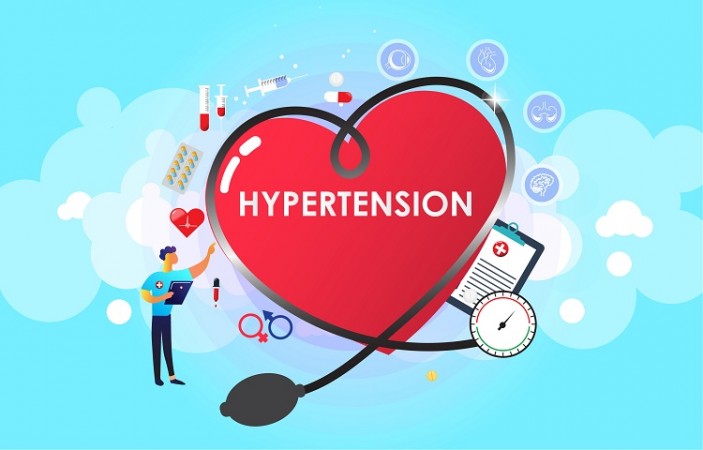
Hypertension, often referred to as high blood pressure, stands as a prevalent yet stealthy adversary in today's lifestyle-driven health concerns. This condition silently affects millions worldwide, earning its ominous moniker as the 'silent killer'. Curiously, it commonly operates without overt symptoms, making its detection and subsequent management a critical challenge.
The insidious nature of hypertension lies in its ability to escalate without conspicuous warning signs. As blood pressure levels surge, the body may not exhibit noticeable indicators, creating a deceptive facade of normalcy. However, beneath this facade lurks the potential for severe health complications, including heart failure and stroke, if left unchecked.
While some individuals may experience subtle warning signs such as headaches, nosebleeds, or shortness of breath, these symptoms often go unnoticed or are mistakenly attributed to other factors. Consequently, this underscores the paramount importance of actively monitoring and controlling blood pressure levels.
Controlling hypertension necessitates a multifaceted approach encompassing lifestyle modifications, medication adherence (if prescribed), and regular monitoring. Here are some effective strategies to help manage and control high blood pressure:
1. Adopt a Heart-Healthy Diet:
Embrace a diet rich in fruits, vegetables, whole grains, and lean proteins.
Reduce sodium intake by limiting processed foods, canned goods, and added salt.
Opt for foods high in potassium, magnesium, and calcium, known to assist in blood pressure regulation.
2. Engage in Regular Physical Activity:
Aim for at least 150 minutes of moderate aerobic exercise weekly, such as brisk walking, swimming, or cycling.
Incorporate strength training exercises to complement cardiovascular workouts.
3. Maintain a Healthy Weight:
Strive for a healthy body mass index (BMI) by combining a balanced diet with regular exercise.
4. Manage Stress:
Practice relaxation techniques like meditation, deep breathing exercises, or yoga to alleviate stress levels.
Engage in hobbies or activities that promote relaxation and mental well-being.
5. Limit Alcohol Intake and Quit Smoking:
Moderation in alcohol consumption and cessation of smoking significantly contribute to blood pressure management.
6. Regular Blood Pressure Monitoring:
Keep track of blood pressure levels at home if feasible or visit healthcare professionals for routine check-ups.
7. Comply with Medication and Doctor's Recommendations:
Adhere to prescribed medications as directed by healthcare providers and attend follow-up appointments.
Prioritizing these lifestyle changes can significantly aid in controlling blood pressure and mitigating the risks associated with hypertension. However, it's crucial to underscore the significance of regular health screenings and consultations with healthcare providers for tailored guidance and treatment plans.
While hypertension may operate inconspicuously, its potential to cause severe health complications cannot be underestimated. By proactively adopting a holistic approach encompassing healthy lifestyle choices and medical guidance, individuals can take charge of their blood pressure levels and safeguard their overall well-being.
Remember, the first step towards conquering this 'silent killer' begins with awareness, vigilance, and a commitment to making healthier choices every day. Your health is your most precious asset, and taking control of your blood pressure is an essential stride towards a longer, healthier life.
Read More:
Say Goodbye to Dry Winter Skin: Essential Tips for Healthy Skin Care
Don't be Afraid of Rambutan: Know its Varied Health Benefits